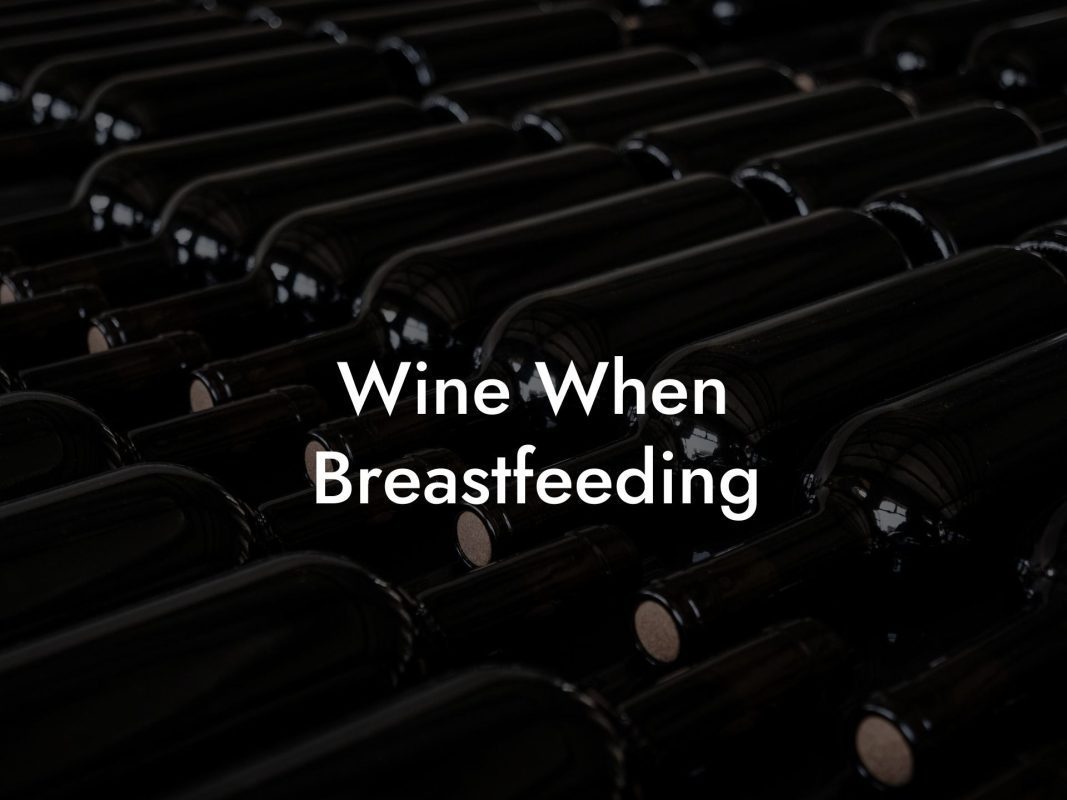Hey wine lovers, ever wondered how long you should let that bottle of beautiful red or white wine breathe before savoring its delicious taste? You're definitely not alone. Wine breathing is an art, and it's just as important to the wine drinking experience as picking the right bottle and pairing it with the perfect meal. Let's unlock the secret behind wine breathing, so you can indulge in the perfect glass every time.
How Long Should A Wine Breathe Table of Contents
What is Wine Breathing?
Wine breathing, or wine aeration, is the process of allowing air to interact with the wine's surface, enhancing its aromas and flavors. This occurs when wine is exposed to air, as the oxygen helps release the volatile aromatic compounds, making the wine taste smoother and more balanced.
Why is Wine Breathing Important?
Various compounds in the wine, such as tannins and sulfites, can create a harsh or bitter taste. Breathing allows these compounds to mellow out, bringing forth the wine's true flavors and complexity. This is especially crucial for red wines, which generally have higher levels of tannins.
Do You Want to Win a Free Bottle of Wine?
Don't miss out on the opportunity to win a free bottle of wine every week.
Enter our weekly prize draw today!
Factors That Affect Wine Breathing Time
The ideal breathing time for a wine varies depending on various factors. Here, we break down some key aspects to consider:
- Age: Younger wines generally require more breathing time, as their tannins are more aggressive, while older wines need less time.
- Type: The type of wine plays a significant role in determining the proper breathing time. Full-bodied red wines with higher tannin content require longer breathing, while lighter reds and white wines need less time.
- Quality: High-quality wines usually have better structure and balance, meaning they might not require as much breathing to bring out their flavors.
- Storage: If a wine has been stored for an extended period, it might have lost some of its aromatics, requiring more breathing to revive its optimal flavors.
General Guidelines for Wine Breathing Times
While the ideal breathing time depends on the factors mentioned above, here are some general guidelines for various types of wines:
- Full-Bodied Red Wines: Such as Cabernet Sauvignon, Bordeaux Blends, and Syrah – 1 to 2 hours.
- Medium-Bodied Red Wines: Such as Merlot, Sangiovese, and Zinfandel – 30 minutes to 1 hour.
- Light-Bodied Red Wines: Such as Pinot Noir, Beaujolais, and Grenache – 20 to 30 minutes.
- White Wines: Most white wines do not require breathing, but oaked Chardonnay could benefit from 15 to 30 minutes of aeration.
- Rosé Wines: Generally do not require breathing, but some fuller-bodied rosés might benefit from 15 minutes of aeration.
How Long Should A Wine Breathe Example:
Consider a young Cabernet Sauvignon that you've had stored for a few years. Given its age, you might want to let it breathe for 1.5 to 2 hours to ensure it reaches its full potential. On the other hand, if you have an older and well-stored Pinot Noir, 20 to 30 minutes of breathing time should suffice.
Now that you're equipped with the knowledge of wine breathing, it's time to bring out your favorite bottle, let it breathe, and indulge in the enhanced flavors and aromas. Don't hesitate to experiment and find the optimal breathing time for your taste buds. Remember, the Black Wine Club has plenty more engaging content on wines, and we would love for you to explore them. If you enjoyed this article, please share it with fellow wine enthusiasts. Cheers!
Do You Want to Win a Free Bottle of Wine?
Don't miss out on the opportunity to win a free bottle of wine every week.
Enter our weekly prize draw today!












